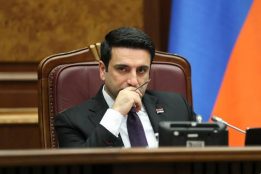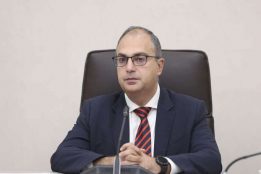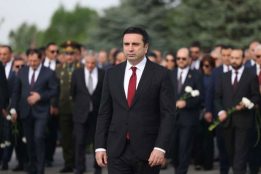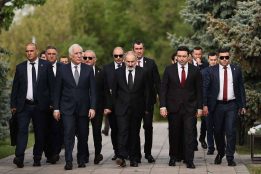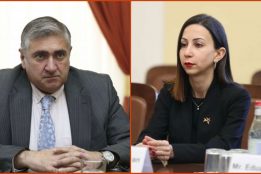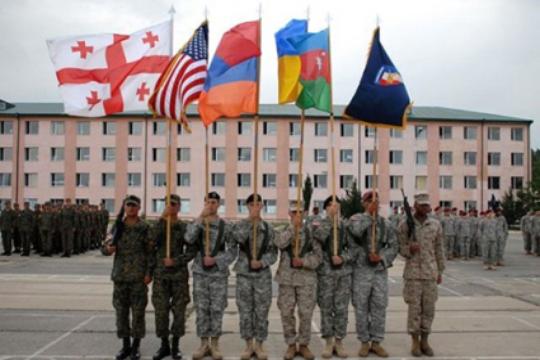
Most Americans wouldn’t be shocked to learn that the largest American embassy in the world is in Baghdad, Iraq. But the second-largest is in a surprising place: Armenia. It begs the question: why?, writes Daniel Gaynor from Truman project.
The best explanation is a real estate mantra: location, location, location. Armenia, a landlocked country with just three million people, might be in the roughest neighborhood in the world. But in America’s eyes, it might be in the most important position of any US ally to advance President Obama’s foreign policy agenda.
Armenia borders Turkey, Azerbaijan, Georgia and Iran. As a part of the former Soviet Union, it relies on nearby Russia extensively for trade and military backing. The US has a significant stake in all five countries, and Armenia is now coming into view as a potentially potent lever to advance American aims.
Gaynor elaborates that Armenia is literally at the center of a number of countries that Washington considers among its top priorities. As President Obama tries to accomplish key foreign policy objectives–like preventing Iran from attaining nuclear bombs or seeing democracy flourish in Russia–he’s got to encourage Armenia to play along.
America is racing to develop every diplomatic pressure point it can on Iran, lest Israel launch a preemptive attack and embroil America in a third Middle East war in ten years. One of those pressure points goes straight through Armenia.
While the US has cut off formal relations with Iran–Washington talks through Switzerland’s embassy there–it’s no secret that it employs a variety of foreign policy crowbars to influence and destabilize Iran’s ruling regime.
For Armenia, the game is far less simple. Partnering with the US–with whom it has a good, but not great, relationship–could alienate the few friends Armenia has left in the South Caucasus region. It wants military cooperation with Russia, but economic access to the west.
While it has tried to deepen relations with the European Union and the US, Armenia’s two best friends at the moment are arguably the US’s most challenging adversaries: Russia and Iran. That’s not necessarily because of shared ideologies, or even shared interests; it’s because Armenia doesn’t have many friends to pick from.
Why the frosty reception? Turkey, which the New York Times recently called “the historic nemesis of the Armenians,” is still steaming mad over the negative PR associated with Armenian Genocide. Armenians believe the Turkish government is reluctant to take the blame.
Azerbaijan, another former Soviet republic, shut its borders with Armenia after the two battled over an Armenian-populated enclave in Azerbaijan, called Nagorno-Karabakh, in the 1990′s. Today, the territory remains a “semi-autonomous” area; meaning that the Azeris want it back, the Armenians believe they control it, and the Karabakhtis has declared independence (which no country has formally recognized).
Meanwhile, the relationship between Armenia and Azerbaijan is sliding downhill. Last week, Azerbaijan made a deal with Hungary to extradite a convicted Azeri murderer. (The man, eight years ago, nearly decapitated a sleeping Armenian serviceman with an axe at a NATO-sponsored English class.) He was returned under the condition that he would serve at least 25 more years in jail.
Instead, as the New York Times put it, he received “a new apartment, eight years of back pay, a promotion to the rank of major and the status of a national hero.” Uproar in Armenia ensued. Armenia’s President released a statement warning, “The Armenians must not be underestimated. We don’t want a war, but if we have to, we will fight and win.”
Meanwhile, Azerbaijan is enjoying the windfall from oil exports. As the New York Times points out, Azerbaijan invested more money in its military than Armenia’s entire state budget last year. Hardly the sign of harmonious relations to come.
Armenia became independent in 1991. Two decades later, it’s still trying to find its footing in the region. It may not have gold, oil, gas or jewels to give to the US. But, instead, it may have something more useful: a strategic position in the most critical—and potentially most dangerous—region in the world.

















